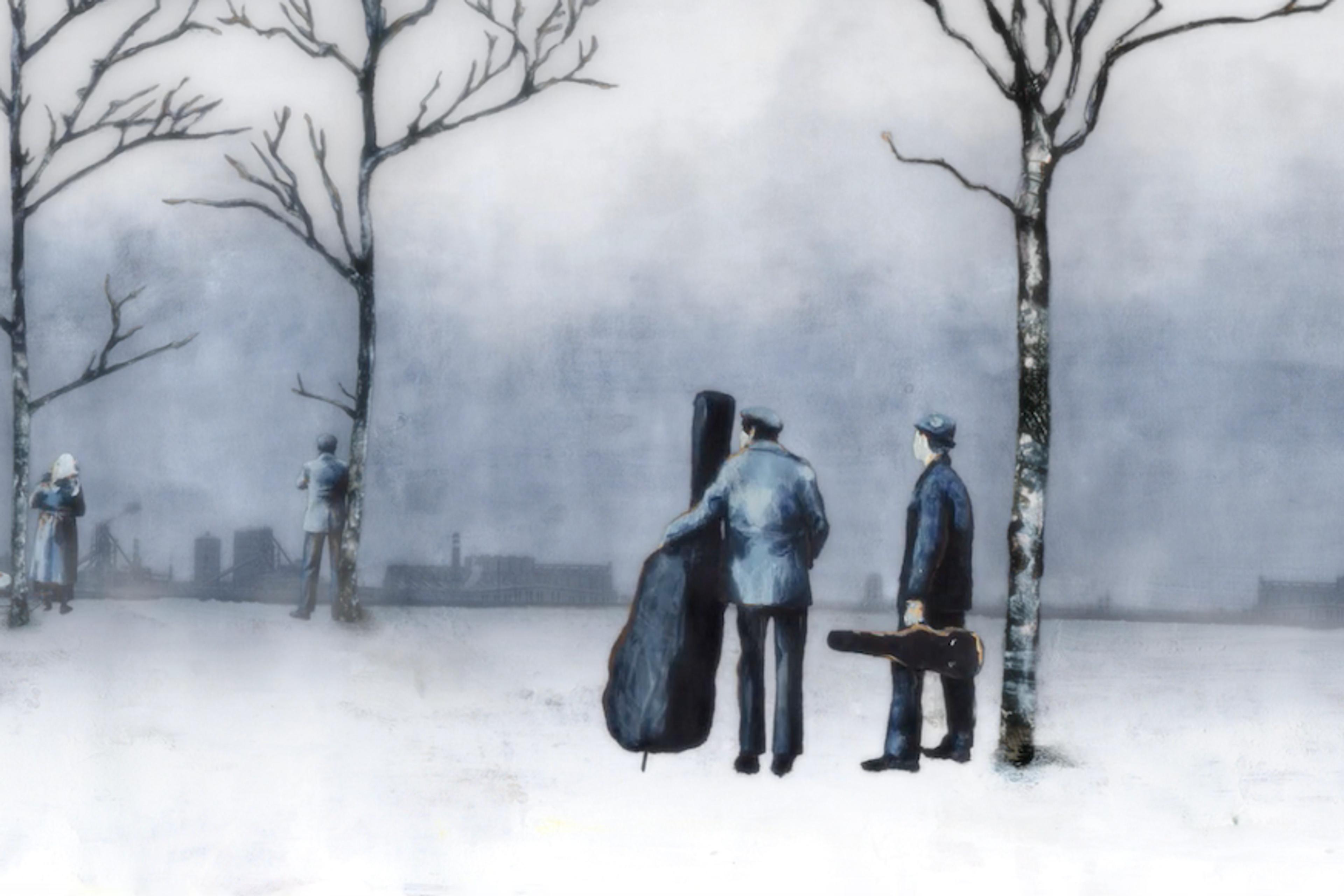Warning: this film features a flashing sequence that may be unsuitable for photosensitive viewers.
It seems near-impossible that a 17-minute film could build an intricate sci-fi universe without stretching itself into anything other than a series of haphazard tropes or, at best, an admirable mess. It seems even more far-fatched that such a work could brim with its own distinctive sense of humour, tragedy and bittersweet hope. And yet, World of Tomorrow (2015) exists – a small miracle of a film, which, widely celebrated on the festival circuit and nominated for an Academy Award for Best Animated Short Film in 2016, is now, finally, freely viewable online. (The work is eminently enjoyable both as a standalone experience and as part of a trilogy of shorts that the US director Don Hertzfeldt has set within the World of Tomorrow universe.)
The film follows a young girl named Emily who encounters an adult clone of herself, visiting from 227 years in the future. In their meeting, the clone introduces Emily to concepts – from consciousness transfers, to time travel, to the perils of love – that she couldn’t possibly begin to comprehend. As they traverse analogue and digital landscapes, and memories of an intertwining past, present and future, the clone details the strange world yet to come. It’s a dystopian and darkly comedic vision – one in which inhabitants spend much of their time revisiting memories on view screens, where consciousness-preserving technologies exacerbate the gap between the wealthy and poor, and people impregnate themselves with their exact clone in vain hopes of living forever.
Viewers that came of age alongside the internet may recognise Hertzfeldt for his proto-viral video in which a fellow with an oversized spoon crosses paths with an anthropomorphised banana. (If, as a teen, you ever downloaded a pre-YouTube file-sharing program, there’s a good chance the words ‘My spoon is too big’ will promptly transport you back to the early 2000s.) The clip was part of a larger Hertzfeldt project called Rejected (2000). Something like a cross between an animated comic strip and a pitch-black sketch comedy show, the work was an early cornerstone of internet humour, and achieved both cult classic status and mainstream acclaim (it, too, was nominated for an Academy Award). With its fidgety stick figures and absurdist sensibility, the short-form fragments of Rejected hint at the aesthetic and imagination Hertzfeldt would bring to his later, more ambitious works – if not his talent for crafting immersive worlds and affecting stories.
In World of Tomorrow, the figures remain sparse, but exist in a rich visual landscape. With his characters moving through memories and the fabric of a neural-linking next-generation internet, Hertzfeldt eschews the stark white backgrounds of his early works, and builds his small universe around vibrant colours and hovering geometric figures. The look, at once anxious and eerily beautiful, forms a perfect bedrock for Hertzfeldt’s artful leap into narrative (if not quite linear) storytelling. Calling back to his earlier surrealist comedy, he crafts some genuine laugh-out-loud moments. Yet, for all the film’s gallows humour and existential rumination, Hertzfeldt is careful not to slip into nihilism. Instead, he leaves viewers with a heartfelt message to do their best to steer clear of despair, even if we all know how our stories ultimately end.
Written by Adam D’Arpino







